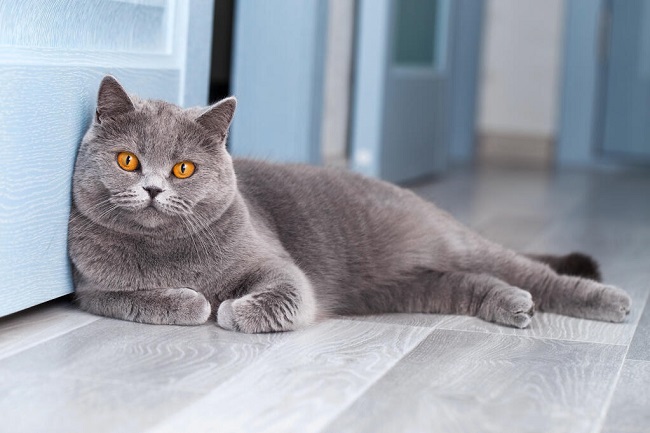British cats, with their plush coats, round faces, and enchanting eyes, have won hearts all over the globe. But did you know there’s more than just one breed of British cat?
In this detailed guide, we’ll delve into various British cat breeds, unveiling their unique attributes, historical backgrounds, and care requirements.

British Shorthair
As one of the most recognized British cat breeds, British Shorthairs are known for their robust physique, plush double coat, and round, expressive eyes. They come in a variety of colors and patterns, but the blue (or “British Blue”) is the most iconic.
Read Also:
History of British Shorthair
The British Shorthair dates back to Rome’s domestic cats, which were brought to Britain around 2,000 years ago. Over centuries, these cats evolved, adapting to the climate and lifestyle of the region, ultimately becoming the breed we recognize today.
Personality and Care
British Shorthairs are typically calm, easygoing, and somewhat reserved. While they enjoy human companionship, they are also comfortable spending time on their own. In terms of care, their dense coat requires weekly grooming, and a balanced diet is crucial to prevent obesity.
British Longhair
British Longhairs share many physical traits with the British Shorthair, including their sturdy body and round face. The key difference, as suggested by their name, is the length of their coat.
History of British Longhair
British Longhairs emerged relatively recently, resulting from the crossbreeding of British Shorthairs with longer-coated breeds. While not as old as the Shorthair, this breed has quickly gained popularity for its luxurious coat and charming disposition.
Personality and Care
Like the Shorthair, British Longhairs are typically laid-back and easygoing. They require more grooming due to their long coat, and they also benefit from a balanced diet and regular exercise.
Scottish Fold and Scottish Straight
While technically not “British” breeds, Scottish Folds and Straights often get grouped with British cats due to their similar origins and characteristics. Scottish Folds are famous for their unique folded ears, while Scottish Straights have standard, upright ears.
History of Scottish Fold and Straight
The Scottish Fold breed originated from a single barn cat named Susie, found in Scotland in 1961. Susie’s unique folded ears were due to a natural genetic mutation, and her offspring formed the basis of the breed. Scottish Straights are essentially Scottish Folds without the folded ear gene.
Personality and Care
These breeds are known for their sweet nature and love for play. They require a standard grooming routine and a diet rich in high-quality protein.
Read Also:
Conclusion
British cats, whether it’s the time-honored British Shorthair, the plush-coated British Longhair, or the distinctive Scottish breeds, each offer unique qualities and charm.
Their hearty constitutions, combined with their generally easy-going personalities, make them ideal companions. As we continue to appreciate these feline wonders, always remember that their health and happiness hinge on responsible ownership and care.
If you’re considering adopting a British cat, make sure to research thoroughly and prepare your home accordingly. Always adopt from a reputable breeder or consider adopting from a shelter. These lovable cats, like all pets, require time, effort, and a lifelong commitment.
























